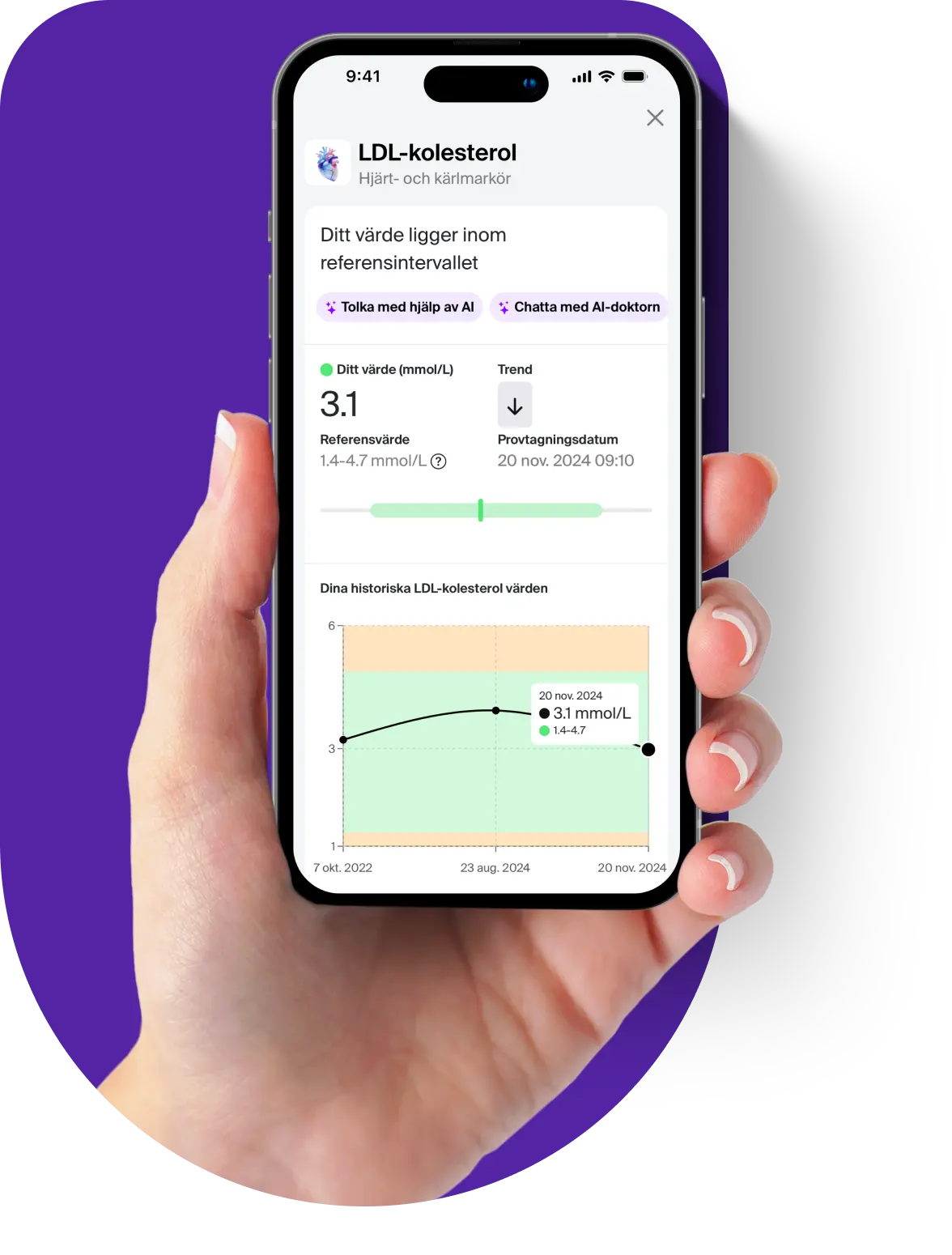What is bilirubin?
Bilirubin is a marker that has several important functions in the blood. Mainly, bilirubin is a breakdown product of hemoglobin, which is found in red blood cells. When red blood cells age and or are damaged, hemoglobin breaks down and is converted to bilirubin. Bilirubin also helps transport and eliminate waste products from the body.
Varför analyseras P-bilirubin?
Analysis of P-bilirubin can provide important information about liver function, bile flow, and blood breakdown processes. By measuring the concentration of bilirubin in the blood, you can identify and monitor various conditions that affect the liver and biliary tract, such as hepatitis, cholestasis, liver damage, and hemolytic diseases.
The bilirubin test can also be an important part of the investigation of jaundice, which can occur in both liver diseases and problems with bile flow. The analysis is especially valuable for those who want to gain a deeper understanding of your liver health and bilirubin metabolism. Regular testing can provide early warning signs of any abnormalities, allowing for faster medical follow-up and preventive measures. By including the bilirubin test in your health check-up, you can proactively monitor your liver and biliary tract function.
What does an elevated bilirubin level mean?
An elevated bilirubin level in the blood can occur for several reasons and often indicates that the body's breakdown, transport or excretion of bilirubin is disturbed. Bilirubin is a breakdown product of hemoglobin in red blood cells and should normally be taken up by the liver and excreted via bile. If this process is affected, bilirubin can accumulate in the blood and lead to hyperbilirubinemia – which is sometimes seen as yellowish skin or the whites of the eyes (jaundice).
Bilirubin and Gilbert's Syndrome
In some cases, elevated levels of unconjugated bilirubin can be an indication of Gilbert's syndrome – an inherited, harmless liver condition that affects the body's ability to break down and eliminate bilirubin. The syndrome is caused by a genetic mutation in the UGT1A1 gene, which leads to a reduced activity of the enzyme uridine diphosphate glucuronosyltransferase (UGT). This enzyme is necessary for conjugating bilirubin in the liver so that it can be excreted via bile.
Gilbert's syndrome is a common and usually harmless condition that occurs in about 3-12% of the population. Many people with the syndrome have no symptoms, but some may experience slightly yellowish skin and whites of the eyes (mild jaundice), especially during fasting, stress, infections or physical exertion. The condition does not require treatment, but knowing your diagnosis can help avoid unnecessary concern when elevated bilirubin levels are detected in blood tests.
If you have recurrent elevated bilirubin levels without other signs of liver disease, it may be relevant to investigate whether Gilbert's syndrome is the cause. A bilirubin test can provide guidance and help distinguish between this harmless condition and more serious liver and biliary tract diseases.
Bilirubin is recommended for those who:
- Want to get a more detailed picture of your liver and biliary tract function.
- Have symptoms such as jaundice, fatigue, abdominal pain or dark-colored urine that may indicate liver damage.
- Have a known liver disease or other conditions that affect bilirubin levels.
- Want a general health check-up to proactively monitor liver status.
Gain more insight into your liver health by measuring your bilirubin levels and getting a clearer picture of your bodily balance.
























